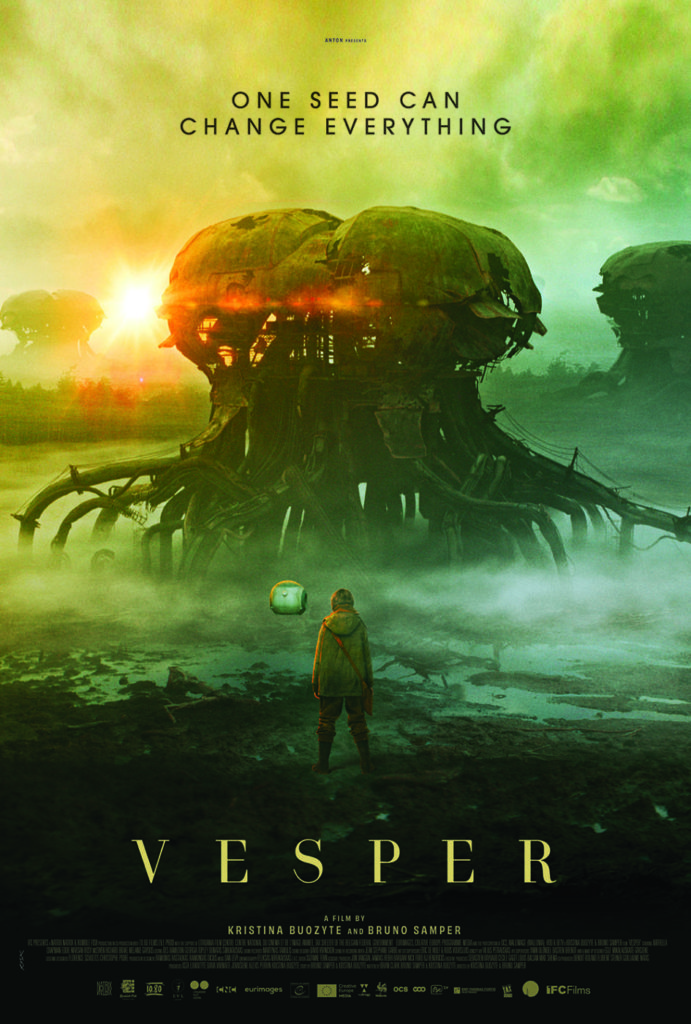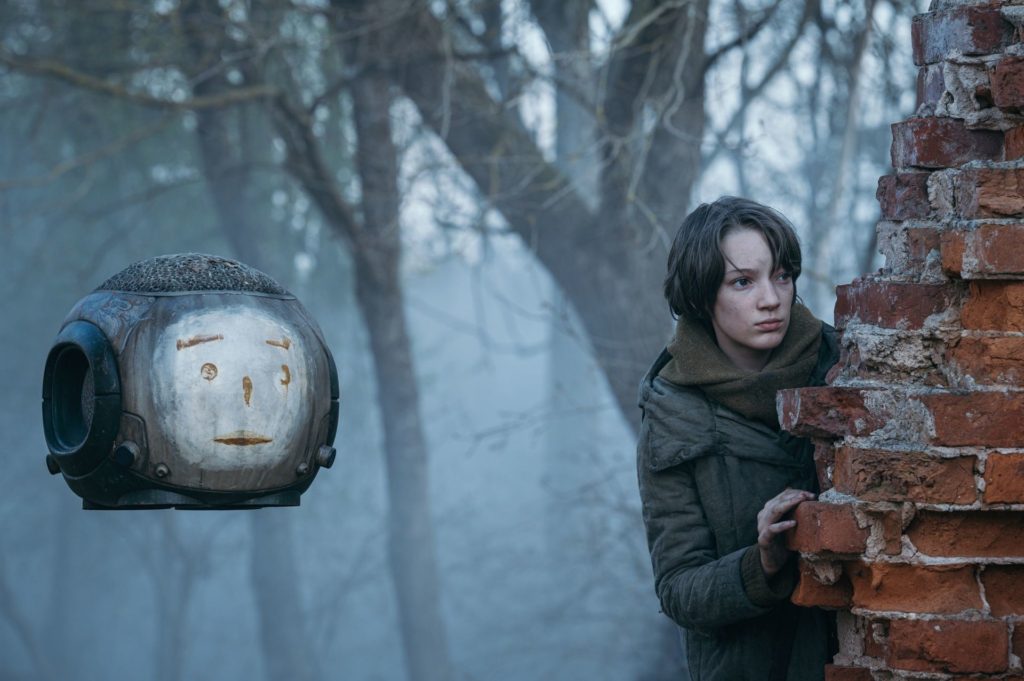Vesper
Nature strikes back

The reader who follows this column has seen my complains about the repetition of themes too much explored in science fiction. Dystopia and post-apocalyptic worlds, then, seem to be a very frequent choice, but without great news. For all this, I was pleasantly surprised by the film “Vesper” (FRA/LT/BE, 2022), which brought a much-explored theme, but with a different approach.
The world is living in a new dark age. In an undefined future, nature seems to have achieved its setback after so many aggressions by man. A dark, cloudy forest is filled with plants affected by a catastrophic ecological crisis, the result of failed genetic experiments that have turned simple vegetables into aggressive and dangerous symbiotic organisms.
Much of the population perished, while some elite groups closed in on protected environments, called Citadels. There they produce grains that are sold at absurd prices to populations that try to survive in the outside world. But these seeds are genetically programmed to produce only one harvest, keeping these people always dependent on them. In addition to not allowing people living in the outside environment to enter, the scientists of the Citadels created the Jugs, humanoids with minimal intelligence to work as servants.

It is in this environment that Vesper (Raffiella Chapman), a 13-year-old girl, lives in a secluded cabin with her father, Darius (Richard Brake). Darius was paralyzed after an accident, and lives on a bed without being able to move. His communication with the world is done through a drone.
Forced to take many responsibilities since childhood, Vesper manages the care of her father, the house and also an old laboratory where she does biological experiments with the plants in her surroundings. His greatest desire is to figure out how to break the code to allow the continued use of the seeds of the Citadel.

Vesper has difficulties with Jonas (Eddie Marsan), his neighbor who negotiates everything he can get his hands on, including the blood of young people, who sell it to the Citadels, for some dark purposes. Jonah is the patriarch of a family made up of women just out of puberty and their children, which he uses as henchmen and blood suppliers. He is also the link with the Citadels, being the only one that has a radio transmitter in the region.
This already troubled routine is shaken once and for all with the fall of a small aircraft from the Citadels. Vesper finds in the forest a young woman, Camellia (Rosy McEwen), removes her from a place of carnivorous plants and takes her home to take care of her injuries. Her hope is that the newcomer could help them be welcomed into one of the Citadels. While searching for the man who had come with Camellia, Vesper once again clashes with Jonas, who realizes that the girl is hiding something.

Nothing seems to be what it looks like. Vesper discovers things about Camellia that can shake the entire structure of the already misfit world in which they live, including by breaking the monopoly of the seeds of the Citadels. Soon she will have to face not only Jonah and his children but also the merciless mercenaries of the Citadels.
As I said at the beginning of the text, films about dystopias and post-apocalyptic worlds are common, but “Vesper” brings some notable news. One of them is the theme of biotechnological domination. Although agriculture is a millennial activity, seed ownership is a reality now. A real and recent case was shown in the film “Percy” (CAN, 2020), when a humble Canadian farmer was sued by the powerful Monsanto, which had the patent for genetically modified canola seeds.

Also highlighted in “Vesper” is the environmental lack of control caused by man in his unbridled search for maximum profit and with total contempt for the delicate balance acquired by nature over millennia.
Unlike most science fiction films that use special effects in action scenes, in “Vesper” they are used in small details, symbiotically animated plants, the biological computer, always in a delicate and exquisite way. Everything brings the feeling of no longer being mechanical, made of metal, but biological, including the drone that replaces the father of the protagonist. In short, a feast for the eyes.

The cast, although small, has excellent performances, in particular teenage Raffiella Chapman, who despite her young age has acted in films such as “The Theory of Everything” (UK, 2014), “Miss Peregrine’s Home for Peculiar Children” (USA/UK, 2016) and the series “His Dark Materials” (UK/USA, 2014-2022).
Another good surprise is Eddie Marsan who delivers a cruel and dark villain without being a caricature. Marsan has a long history in film and television in supporting roles, this being one of his first highlights.
“Vesper” had a limited premiere in theaters in Europe and the United States and is not yet expected for Brazil, with the possibility of being released directly on video. The movie “Percy” can be seen on the Netflix streaming service.






